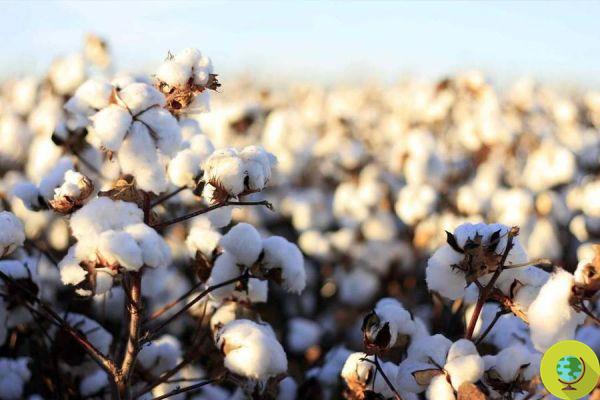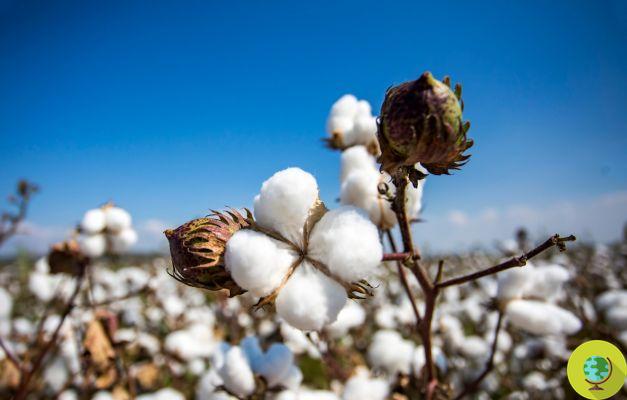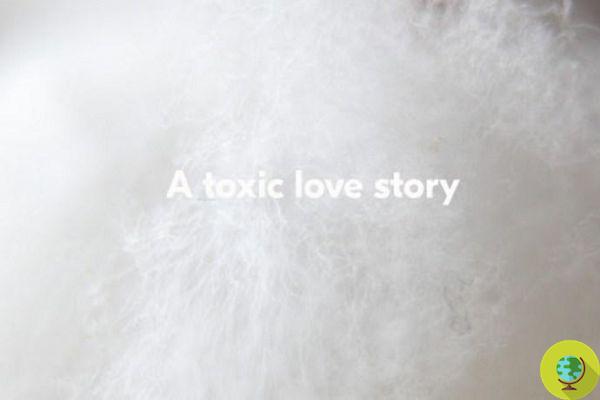
What are the environmental benefits of organic cotton? An international study on the life cycle assessment of organic cotton brought them together and showed that the cultivation of organic cotton is responsible for fewer environmental impacts than conventional cotton.
Don't store avocado like this: it's dangerous
What are the delivery times? environmental benefits of organic cotton? An international study on the life cycle assessment of organic cotton brought them together and showed that the cultivation of organic cotton is responsible for lower environmental impacts than conventional cotton.
The organic cotton study was commissioned by Textile Exchange, an international non-profit organization that works to promote a more sustainable textile industry. He also contributed to the analysis ICEA.
The analysis is based on data collected from producers in India, China, Turkey, Tanzania and the United States, which alone account for 97% of world organic cotton production. I study Life Cycle Assessment assessed the impact of organic cotton cultivation in the categories greenhouse effect, soil erosion, acidification potential, water and energy consumption.
The results obtained were reviewed by a group of external and independent experts (peer review) and then compared with those of another study related to conventional cotton that had been conducted by Cotton Inc. in 2012. Comparing the two studies showed that the following results are obtained from organic cotton:
- 46% reduction of greenhouse gas emissions
- 70% reduction of emissions responsible for acidification
- 26% reduction ofeutrophication, or rather of the excessive enrichment of nutrients of the ecosystem
- 91% reduction water consumption mainly intended for irrigation (excluding rainwater)
- 62% reduction energy consumption primary.
This study makes it possible to satisfy the growing demand for data to verify the environmental benefits deriving from the production of organic cotton. The textile companies that are part of TE share the common goal of reduce the environmental impacts of the sector. Among the best known names we find H&M, C&A, Nike and Inditex.
"The publication of the Organic Cotton LCA study marks a turning point for the organic cotton industry as a whole" - Rhea Pepper points out, CEO of Textile Exchange: "for 12 years we have been promoting the environmental benefits of organic cotton, this study allows us to show the data to support what we already know - that is organic cotton is more environmentally sustainable than conventional cotton. These findings do justice to people and organizations throughout the organic cotton supply chain, from farmers, spinners, brands and retailers to the final consumer. Engaging in planting, growing, cultivating and using organic cotton fabrics is also a commitment to improve our water, our soil, our air ”.
Therefore, even the clothing multinationals seem interested in changing course, given the environmental impact of conventional cotton and the demands of consumers for greater sustainability. The growing demand for organic cotton by companies could however not be satisfied with the current crops as production is still quite low. A sign that for the agricultural production of cotton it is time to change course, with a transition to organic.
Specialties Thu lo study di Textile Exchange.
Marta Albè
Read also:
Organic Cotton: Neil Young calls for a boycott of pesticide-grown cotton
GMO cotton: Monsanto seeds banned in India after bad harvests of BT Cotton
How much water does a T-shirt consume?

























